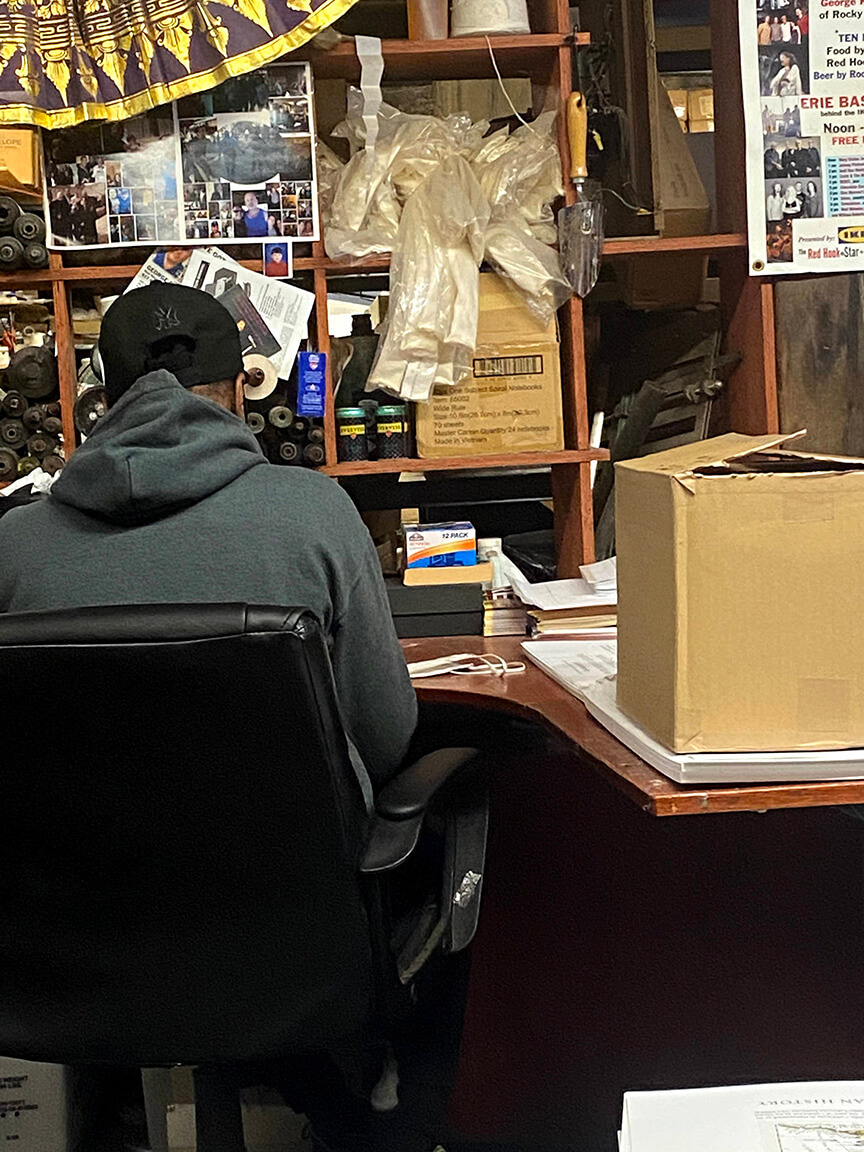Winter is always a difficult time for homeless people in New York City, but the coronavirus pandemic has created new problems that make it even more challenging to survive the winter. I had the opportunity to talk to a military veteran and former hip-hop dancer, who recently became homeless, about his trials and tribulations. He asked to remain anonymous, so we will call him Ron.
He works in a Red Hook direct mail company, but his hours have been cut since the pandemic since business (until recently) dropped almost to zero. He made enough money to pay for a room in Bed Stuy ($600 a month), but what Ron thought was a permanent situation ended suddenly when the actual resident of that room was released from prison and told him to leave.
Ron has been homeless before and knew about spending time between work traveling in warm subway cars, but because the subways are closed at night for cleaning, he had to resort to sleeping in a friend’s car, including during the December snowstorm. While it gives him some shelter, it gets very cold and is far from an ideal situation. He talked about what a typical day can be like, while homeless and the additional challenges COVID-19___0 has caused.
While he has been able to get food, staying warm during the winter has been difficult, especially at night.
“Usually, the easiest way to stay out of the cold at night would be taking the subway and getting some rest,” he said. “Now because of coronavirus the subways are closed from 1-5 am. The stations are closed too, so they kick everyone out.”
“You have to ask yourself how people who are homeless are living,” he said. “Let us say you have a cellphone…you have to figure out how to spend the time in your day. If you need a job, you can go to Starbucks or McDonalds and fill out your applications on your phone. Now all those places are closed. If it’s possible you can spend some time with friends and family but it’s tough. You’ve got to seek refuge and the nights are tough, especially with the storm.”
The homeless have been hurt by COVID-19 more than most and the pandemic has made it especially difficult to get through days. For many, shelters are not a safe option because the coronavirus could easily spread in them.
“Most don’t think about it but people have to understand that one day that could be you,” he said. “It’s easy to be evicted. If a working person is at a point where they work just to pay rent, there is no security. You can’t miss a beat, or you’ll end up in the street. You must get through it though. There’s an art to survival and you have to keep learning.”
“There are a lot of problems, especially with this COVID-19 situation but there are still a lot of options for food,” he said. “There are places to go to get food for free. Bread & Life is on Lexington Ave., CHiPS, which is on 4th Ave., and Neighbors Together, on Fulton St.”
Each place works differently but they all provide free food for those who need it.
“My experiences at all of them have been alright,” he said. “Most open in the morning so you could end up waiting a while if you don’t get there early. Some of them have pre-made bags of food and you can leave anything you don’t want there. Other places, it is more like a grocery store and you can pick out what you need. Sometimes they will have extra food left over and everyone can get some more, but since the pandemic there have been longer lines.”
Despite the higher demand for food among the homeless during this time, he said there are plenty of places giving out food for those who need it in New York City.
“There’s no reason for people in New York City to be hungry because there are more than enough places to eat for free. I found out about all of these places just from word of mouth or walking by and seeing the lines, then asking what everyone was waiting for.”
The story has a bit of a happy ending for now, but only because a friend of a friend was able to get him a small room in a Williamsburg hotel through the Department of Homeless Services. It’s probable though that being an ex-marine is what greased the wheels of that network.









